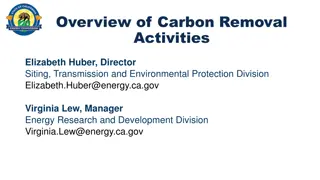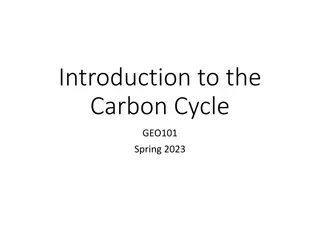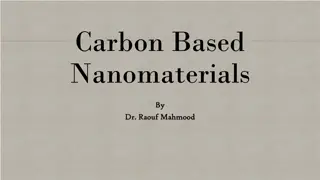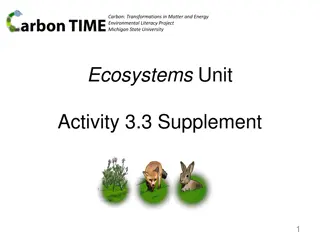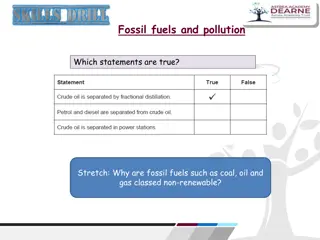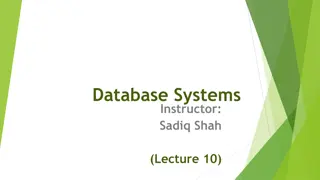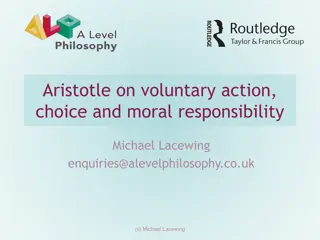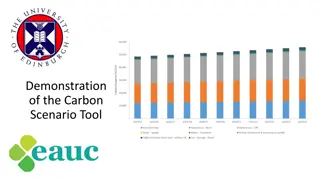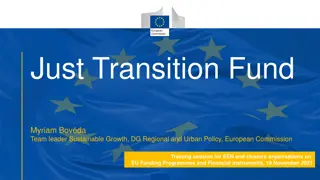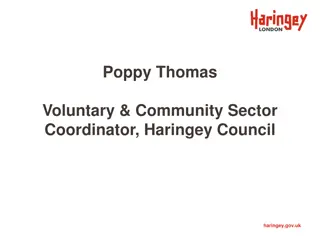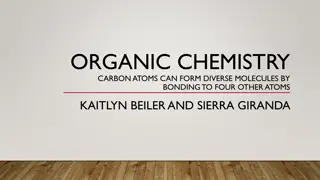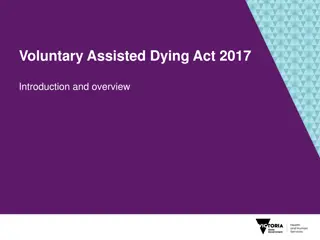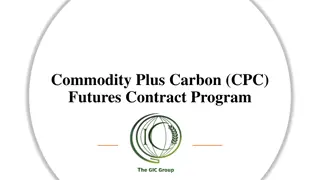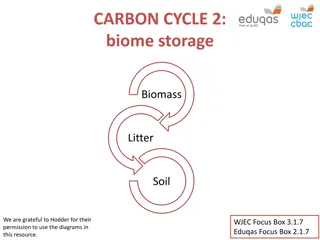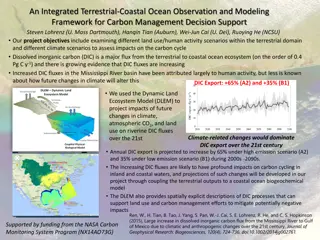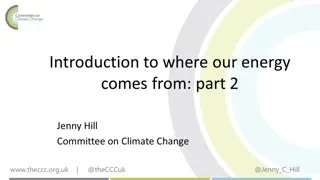Ensuring Integrity in the Voluntary Carbon Market for a Just Transition
The voluntary carbon market plays a crucial role in achieving a just transition to 1.5°C, emphasizing high integrity standards. The ICVCM has set Core Carbon Principles to uphold quality standards for carbon credits, ensuring market integrity and participant eligibility. Key components include assessment frameworks and category-level requirements like additionality and sustainable development impacts. Ensuring emissions reductions or removals are indeed additional is central to the market's success.
Download Presentation

Please find below an Image/Link to download the presentation.
The content on the website is provided AS IS for your information and personal use only. It may not be sold, licensed, or shared on other websites without obtaining consent from the author. Download presentation by click this link. If you encounter any issues during the download, it is possible that the publisher has removed the file from their server.
E N D
Presentation Transcript
The voluntary carbon market is critical to accelerate a just transition to 1.5 C. But it will only succeed if it is rooted in high integrity.
Expert Panel Co-Chairs Daniel Ortega-Pacheco Executive Secretariat Representatives William McDonnell NatKeohane Board Representative Alexia Kelly
ICVCM has established a set of Core Carbon Principles (CCPs) which set new threshold standards for high-quality carbon credits and define which carbon-crediting programs and methodology types are CCP-eligible. We provide governance and oversight over standard-setting organisations on adherence to theCCPs as well as on market infrastructure and participant eligibility. Help to coordinate and manage interlinkages between individual bodies to define a roadmap for the responsible growth of the Voluntary Carbon Market.
Release 1 (March) included: Ten fundamental principles for high-quality carbon credits that create real, verifiable climate impact, based on sound science and best practice CORE CARBON PRINCIPLES ASSESSMENT FRAMEWORK (PROGRAM LEVEL) Detailed criteria used to determine whether carbon- crediting programs that apply meet the CCPs The process through which programs and categories are assessed against the CCPs, and ongoing oversight ASSESSMENT PROCEDURE Release 2 (July 27) includes: ASSESSMENT FRAMEWORK (CATEGORY LEVEL and updates) SUMMARY FOR DECISION-MAKERS (updated) Detailed criteria used to determine whether Categories of carbon credits (~methodologies) meet the CCPs Explains the Assessment Framework and specifies a suite of continuous improvement work programs
Category-level requirements: Additionality Permanence Robust quantification Sustainable Development Impacts and Safeguards Transition to net-zero Work Programs on a range of topics of market importance
Programs must ensure that the emissions reductions or removals would not have happened without carbon credit incentives and that they were not enforced by law. Additionality assessment will take into account where carbon-crediting programs have already introduced restrictions on some activities to ensure they remain additional, notably certain types of renewable energy and energy efficiency projects.
Programs must ensure that projects measure their impact on emissions conservatively to minimize the risk of overestimation. They must set clear physical boundaries to the project, consider its impact on all carbon sources and sinks within the boundary, as well as knock- on effects on emissions outside its boundary, and review this regularly.
Projects will have to monitor and report on emissions reductions and removals for at least 40 years where there is a risk they may be reversed and maintain a risk-based buffer pool of carbon credits that can be cancelled to compensate for any reversals. This includes projects that protect and restore forests, wetlands and marine ecosystems, and that store carbon in farm soil. A Multi-Stakeholder Work Program will study how to further strengthen criteria in the next version of the CCPs.
All new projects must put in place robust social and environmental safeguards that deliver positive sustainable development impacts. Requirements on programs include to: ensure free, prior informed consent from IPs & LCs assess and mitigate risks to IPs & LCs, including land acquisition and human rights assess and mitigate risks to biodiversity and sustainable management of natural resources be transparent about how they share project benefits with IPs & LCs Existing inventory of projects need to meet CORSIA and do no harm requirements A Multi-Stakeholder Work Program will be set up to advise on how to further strengthen criteria in the next version of the CCPs
The Framework rules out projects that lock in fossil fuel emissions or technologies, including: enhanced oil recovery using carbon capture and storage; road transport powered solely by fossil fuels; and all electricity generation from coal or other unabated fossil fuels - except - new gas power as part of increased zero emissions generation supporting a national low-carbon transition plan.
To raise ambition in the next version of the CCPs, Work Programs will examine best practices and new approaches for: jurisdictional programs permanence requirements digital MRV: universal data standards for remote sensing and other technologies to verify, monitor and report on projects disclosure of credit pricing and revenue, and standardised market infrastructure project alignment with host country NDCs oversight of verification and validation (including feedback processes) simplified CCP-Approval path for small projects These are in addition to those previously announced which will focus on: Paris Alignment (Corresponding Adjustments and Share of Proceeds for Adaptation) Sustainable Development Impacts & Safeguards
PUBLISH: o First approved programs and Categories of credit types PUBLISH o Core Carbon Principles + Attributes o Assessment Procedure o Program level assessment framework Category level assessment framework PROGRAM LEVEL ASSESSMENT: ONGOING ASSESSMENT FAST TRACK FOR CORSIA ELIGIBLE PROGRAMS CATEGORY LEVEL ASSESSMENT: FAST TRACK: Highly likely to meet Category - level CCPs CATEGORY WORKING GROUP FIRSTLABELSISSUED MUTLI-STAKEHOLDER WORKING GROUP: Deeper assessment for labelling process FURTHER CATEGORY-TYPE LABELS ISSUED WORK PROGRAMS FEED INTO CONTINUOUS IMPROVEMENT
Post social media content to promote in your community using our suggested posts Sign up to our newsletter (here) and share the launch with your network Follow @ic_vcm channels and share, like, comment on the posts Raise awareness of ICVCM s new global benchmark using hashtags #CoreCarbonPrinciples and tagging @ic_vcm




